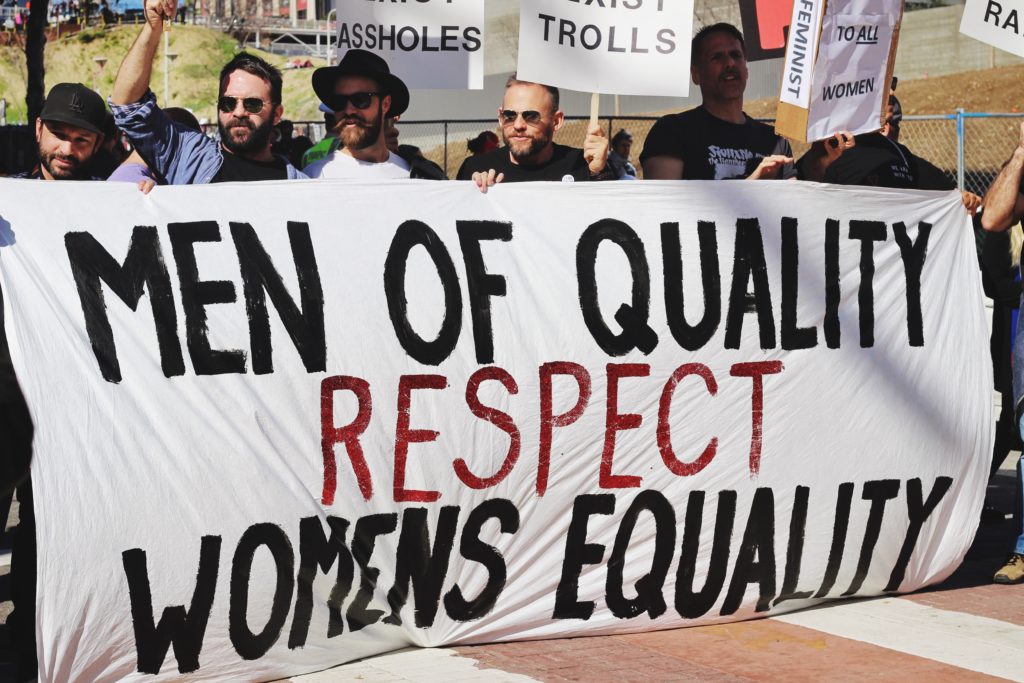According to Bloomberg, since the New York Times reported allegations of serial predation by movie mogul Harvey Weinstein a year ago, “at least 425 prominent people across industries have been publicly accused of sexual misconduct, a broad range of behavior that spans from serial rape to lewd comments and abuse of power.” 425. And Bloomberg was sure to note that this number is conservative, as the included data was limited to publicly reported allegations of sex-related bad behavior in national, state and local media, trade publications and the public record. In other words, the data omitted “alleged instances of broader gender discrimination, non-sexual bullying and racial insensitivity”. But even with the conservative estimate of 425, that means that there has been more than one newly reported person facing accusations each day, on average, for the last 12 months. This is significant. For many, the #MeToo movement’s arrival signified the end of silence for survivors of sexual misconduct. For the first time, it seemed that victims were being believed, and perpetrators were being held accountable, as reflected in that statistic. But now, a year later, it seems that the #MeToo movement’s momentum may be slowing, and change is becoming more and more incremental. And one thing is for sure. The movement is officially seeing its backlash.
As the old white men holding elected office are becoming incredibly defensive of their kind, they are starting to push back. This was ultimately proven with the confirmation of Supreme Court Justice Brett Kavanaugh, who was credibly accused of sexual assault. So while we have the 425 being held accountable, we still have men such as Kavanaugh and our own president whose identities as white men is enough to overcome a barrage of sexual misconduct allegations. And along with this, it seems that the objective of the #MeToo movement has gotten muddled by partisan agendas. The biggest divide on the Kavanaugh allegations were by party, not gender. A HuffPost/YouGov poll found that 34 percent of men did not find Ford’s allegation credible, compared with 23 percent of women. Yet 60 percent of Republicans did not think her allegation was credible, compared with 8 percent of Democrats. That’s a significantly wider gap by party than by gender. And that gap extends beyond the specifics of the Kavanaugh/Ford case. Earlier this year, the Pew Research Center asked how the increased attention on sexual assault and harassment has affected workplace dynamics. Sixty-four percent of Republicans and 55 percent of men said it was harder for men to navigate the workplace in the #MeToo era, compared with 42 percent of Democrats and 47 percent of women. That’s a 22-point partisan gap, compared with only an 8-point gender gap. So while the #MeToo movement mostly seemed like a female issue, it has quickly become a partisan issue, which is far from helpful for the intentions of the movement itself.

Tarana Burke, Founder of the #MeToo Trend. Photo by Penn State on Flickr.
Another factor that may be hindering the #MeToo movement is its lack of attention to “gray areas”. While the criminal acts of Harvey Weinstein may be easy for most people to denounce, the gray area of allegations such as those against Aziz Ansari may be a bit more troubling for people to address. But digging deeper into those gray areas, and educating ourselves and those around us about its potentially harmful effects, may be the key to progressing the #MeToo movement. As #MeToo founder Tarana Burke told Yes! Magazine’s Zenobia Jeffries in January:
“The gray area is really important to talk about because so many of us live in the gray area. People talk a lot about how men are confused about consent and they don’t know if they should touch this or touch that, or ask.
But I also think there are issues around consent for women as well because we’ve been socialized to believe that we have to give in to the whims of men. That you have to well, OK, he asked three times, he asked four times, I gave in on the fifth time. And I’m not saying that giving in is automatically sexual assault, but it definitely is a gray area.”

So while gray areas may be trickier to understand, they are still a necessary part of the movement. Last December, Matt Damon made some comments on the movement that did not sit well with most. In an interview on “Popcorn with Peter Travers,” Damon said that we are living in a “culture of outrage” and that these recent allegations of sexual misconduct need to be analyzed on a spectrum. Specifically, he said, “There’s a difference between patting someone on the butt and rape or child molestation. Both of those behaviors need to be confronted and eradicated without question, but they shouldn’t be conflated.” And while Damon’s comments may have been poorly stated– after all, child molestation and a pat on the butt in the same sentence doesn’t sit well with anyone– the underlying message of his comments may actually be important. Consent is on a spectrum. Sexual misconduct is on a spectrum. And to deny either of these things would be harmful to the #MeToo movement itself. Because as Burke said, many of us live in that gray area. And denying its existence, or trying to push it into the black or the white side of things, is only hurting those of us residing within it.
So here we are, arriving at the one year anniversary of the #MeToo movement, and reflecting on its effects so far. And the truth is, the movement is nowhere close to over. But that’s not necessarily a bad thing. Sometimes slow, incremental change lasts much longer than a quick overhaul of a societal belief system. So yes, we still have a long ways to go. We still have issues with defensive men, and victim blaming, and an exaggeration of the frequency of false accusations– all as seen in the most recent Kavanaugh/Ford case. But we also have 425 perpetrators of sexual misconduct pushed from the shadows. We have women and other victims finding their power and speaking up. We are slowly breaking the cycle of victim shaming and blaming, and finding the space for these victims to be heard and believed. So while there is still much more to be done, we should take a moment on this anniversary of the #MeToo movement to be grateful for this start. Let’s all continue to speak up and support each other and hopefully, slowly but consistently, real change will be made.
By: Cianna Allen

